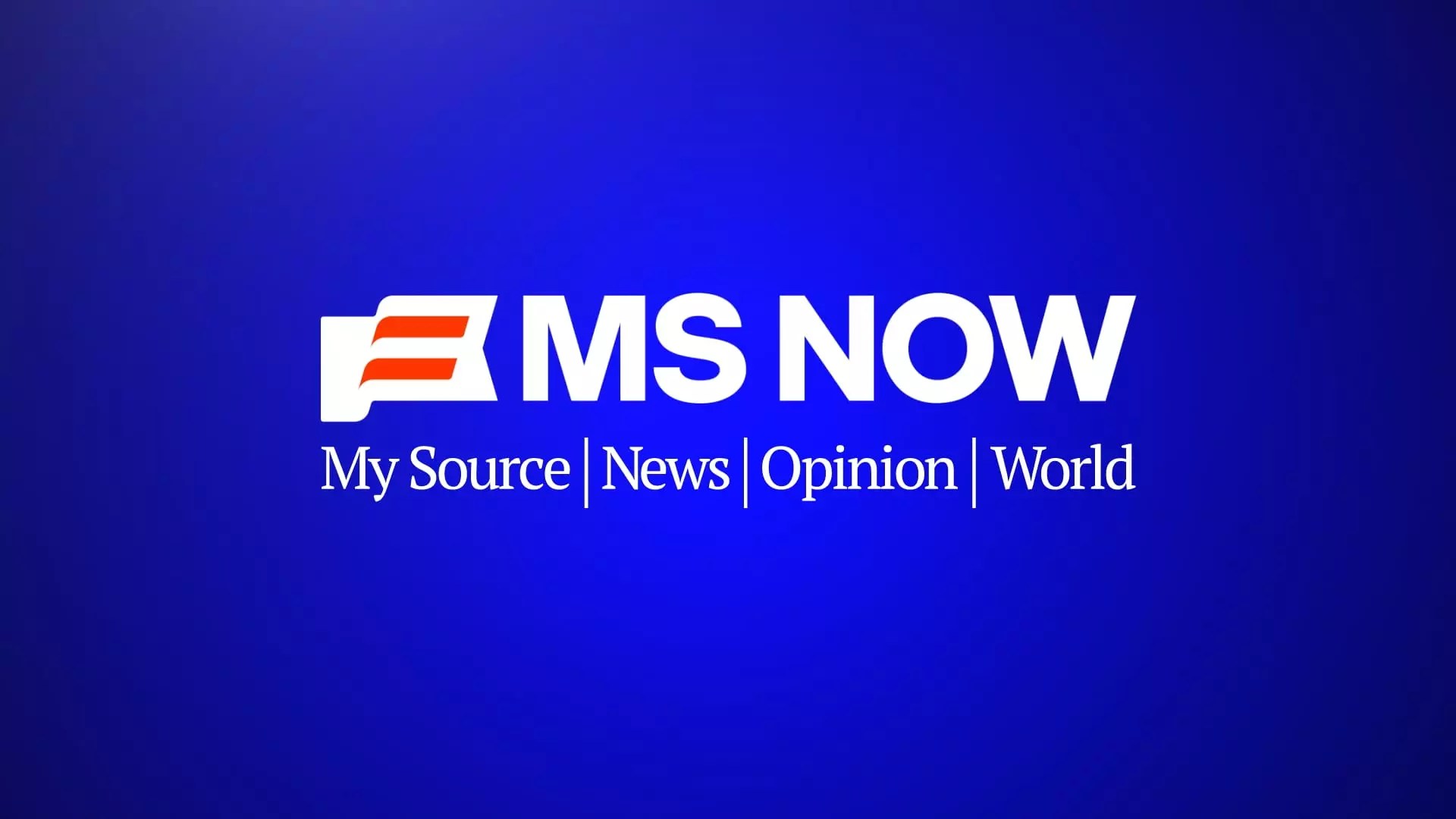In a move that signals more than mere cosmetic change, MSNBC’s impending name overhaul sparks a critical debate about the network’s future direction and its core identity. The decision to rename MSNBC to “My Source News Opinion World” (MS Now) and shed its iconic peacock emblem is not just a branding exercise; it’s a strategic recalibration that raises questions about the network’s positioning in a fiercely competitive media landscape. While executives tout this as an effort to foster independence from NBC News, critics argue it is an acknowledgment of deeper internal struggles—an attempt to reinvent or obscure a brand that has been synonymous with a particular ideological stance for decades.
The timing is particularly revealing. This renaming, part of Versant’s transition plan, coincides with efforts to establish MSNBC as a standalone newsroom, emphasizing editorial independence. Yet, such a seismic shift in identity risks alienating a loyal viewership that has gravitated toward MSNBC’s branded reputation for progressive commentary. Instead of reinforcing credibility, a radical rebranding might sow confusion, dilute trust, and usher in an era of uncertainty. When a network’s name and logo serve as anchors for viewer expectations, changing them aggressively signals a desire for reinvention—though whether that reinvention will be genuine or superficial remains to be seen.
Breaking Away or Falling Behind? The Politics of Branding
From a political perspective centered on center-right liberalism, the decision to disassociate from NBCUniversal’s peacock is a calculated move aimed at carving out a unique space in the fragmented media environment. It seems designed to position MSNBC as a more independent voice—a necessary differentiation amidst accusations that the network leans excessively to the left. By establishing its own identity, MSNBC might aim to appeal to moderates and conservatives disillusioned with what they perceive as bias or partisanship elsewhere.
However, branding is more than a logo change; it’s an ideological statement. Ditching the familiar peacock may be intended to distance the network from past perceptions or associations—perhaps with the broader corporate interests of NBCUniversal or from the more mainstream, establishment media. Whether this severance manifests as a true journalistic overhaul or a mere rebranding stunt remains uncertain. If the latter, MSNBC risks alienating its core audience, who rely on the network’s established persona to scrutinize and challenge the political status quo. A move that signals instability might unintentionally undermine the credibility MSNBC has built, especially among viewers who value consistency as much as content.
The Business Gamble: Will Rebranding Lead to Sustainable Growth?
The strategic gamble here involves positioning MSNBC as a fresh, independent entity, capable of competing directly with more centrist or right-leaning outlets that have gained prominence. The network’s aggressive hiring—bringing in journalists from competitors like CNN, Bloomberg, and Politico—and the launch of an independent Washington, D.C., bureau signifies ambitions beyond a mere rebrand. It suggests a desire to craft a new identity that aligns with a more centered or nuanced political stance, potentially broadening its appeal.
Yet, rebranding cannot and should not serve as a substitute for substantive change. The network’s plan to initiate a nationwide marketing campaign signals an awareness that its brand is in flux and possibly under threat. The risk is that such efforts may come across as superficial if viewers do not perceive genuine independence or journalistic integrity. This could lead to a cycle of skepticism, where audiences see rebranding as just another branding ploy rather than a meaningful evolution.
Furthermore, this upheaval occurs amid a shifting media ecosystem where trust is scarce and brand loyalty is fragile. The move to shed traditional symbols like the peacock might be perceived as a step towards modernization, but it could just as easily be seen as an existential crisis. For MSNBC to succeed in this transition, it must demonstrate not only independence from NBC’s corporate influence but also establish a clear, compelling editorial stance that resonates beyond ideological bubbles.
Is This Rebranding a Bridge or a Barrier?
Ultimately, MSNBC’s transformation reveals a fundamental conflict inherent in modern media: the tension between maintaining a recognizable brand and evolving to meet new market realities. While diversification and independence are laudable goals, they should not come at the expense of clarity and trust. The network’s decision to strip away symbols of its longstanding identity might be driven by a desire to reassert itself in a crowded space, yet it also risks creating a confusing narrative that viewers may find difficult to follow.
In the end, whether these changes will serve MSNBC well depends on its ability to differentiate itself through content, integrity, and core values—not solely through branding. If the network can capitalize on its independent stance to craft journalism that appeals to a broader, more balanced spectrum, then the rebranding could be a masterstroke. Conversely, if it is merely a cosmetic overhaul that masks internal struggles, the network risks losing its foothold altogether in the increasingly polarized landscape of American politics.


Leave a Reply